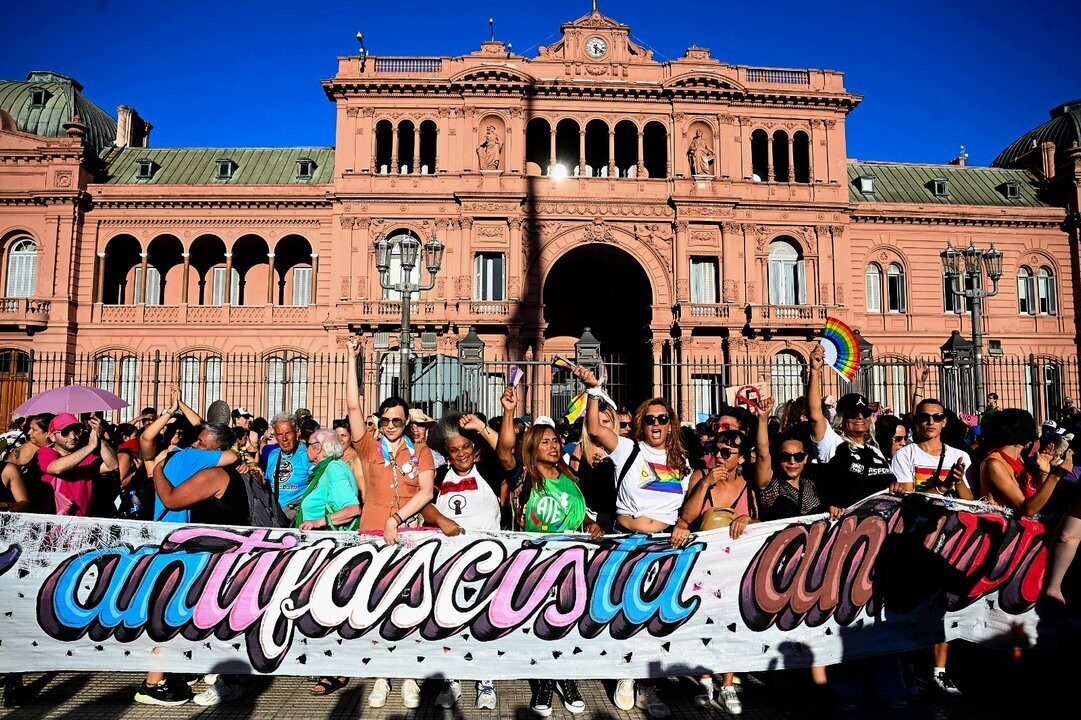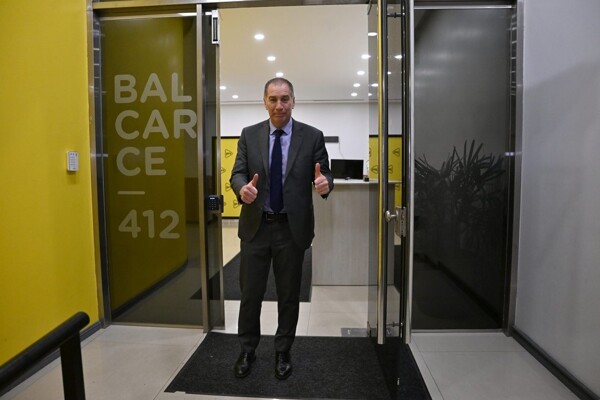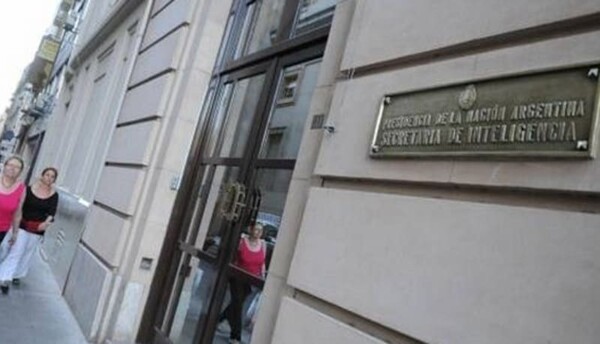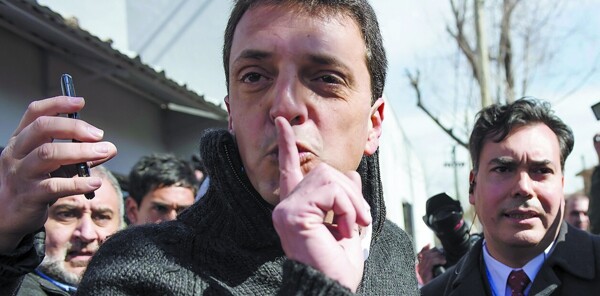
The LGTBIQ+ collective mobilized to Plaza de Mayo with criticisms of President Javier Milei and a strong presence of the opposition to repudiate the recent speech of the president at the World Economic Forum in Davos.
With the support of social, union, and political organizations, groups related to gender and diversity led the massive mobilization against Milei, who had labeled members of sexual minorities as "pedophiles."
In a press release, they stated: "The enormous mobilization where all the attacked and aggrieved sectors by the Government are expressing themselves must be the starting point of a great movement to fight against Milei's Government and its policies of hunger, austerity, and betrayal."
Manuela Castañeira, a leader of Nuevo Más, joined the march and assured on social media that the national Government "halted" the bill to remove the figure of femicide from the penal code in the face of the massive LGTBIQ+ Federal March.
Additionally, the General Confederation of Labor (CGT), Madres de Plaza de Mayo-Línea Fundadora, and other human rights organizations joined the mobilization, as did Hugo Yasky, the general secretary of the Workers' CTA, alongside the two factions of that labor union.
Leaders of the Left Front such as Myriam Bregman, Nicolás del Caño, and Christian Castillo were present at the protest, which was replicated in several provinces.
Although the march proceeded without incidents, there was controversy regarding the security operation, as Federal Forces were not deployed, nor was the Anti-Protest Protocol applied as expected.
On the other hand, federal judge Alejo Ramos Padilla issued a preventive habeas corpus to prevent Security Forces from intercepting individuals or transports, while the city government criticized Minister of Security Patricia Bullrich for "freeing the streets."
The mobilization, which is estimated to have gathered about 20,000 people in the City of Buenos Aires, included the presence of political leaders from the opposition, such as the governor of the province of Buenos Aires, Axel Kicillof, and members of La Cámpora like Máximo Kirchner, Mayra Mendoza, Lucia Cámpora, Paula Penacca, Eduardo "Wado" de Pedro, and Mariano Recalde, among others.














